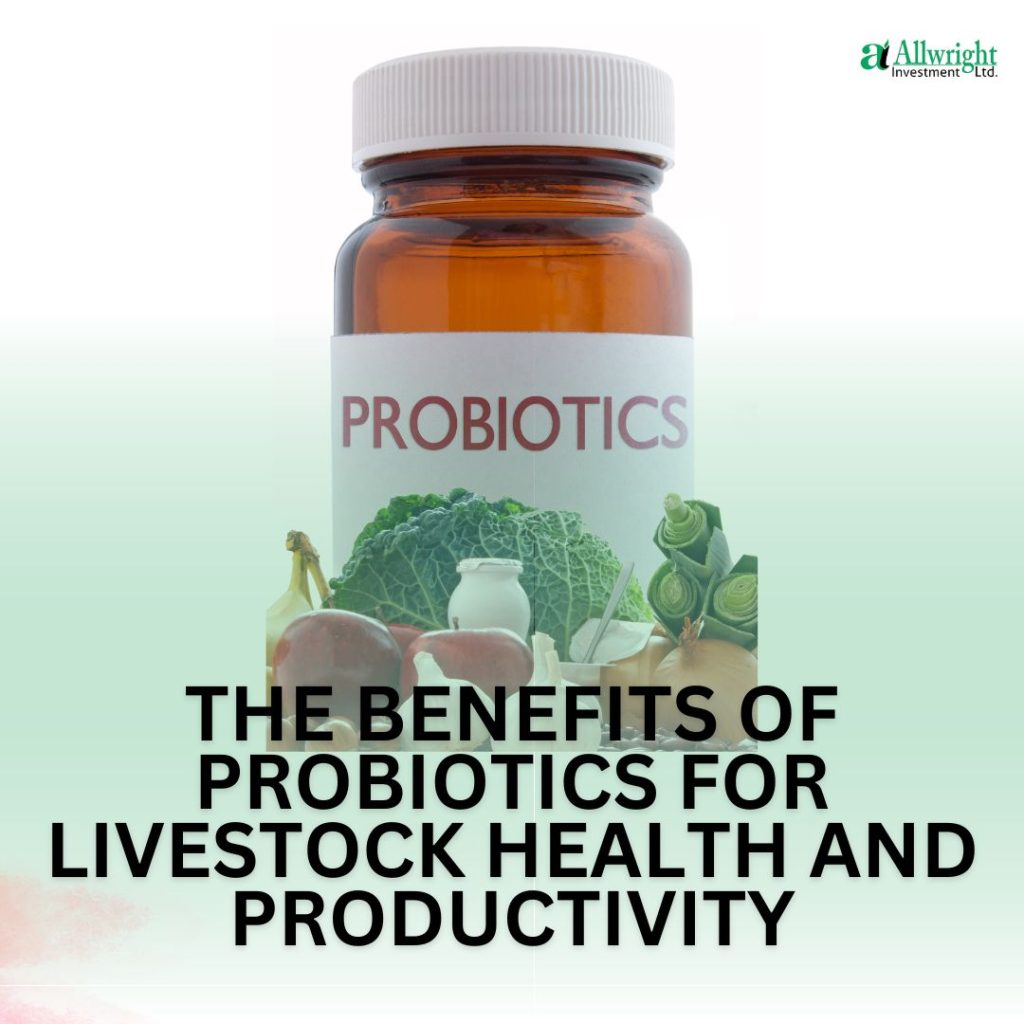
In the world of livestock farming, maintaining animal health and boosting productivity are top priorities for every farmer. However, achieving these goals can be challenging due to common health issues, fluctuating productivity, and the growing concern over antibiotic resistance. Fortunately, probiotics offer a natural solution to improve both livestock health and productivity.
Let’s look at how probiotics can benefit your livestock, enhance their wellbeing, and ultimately boost your farm’s bottom line.
Understanding Probiotics in Livestock Farming
Probiotics are live microorganisms, primarily beneficial bacteria, that improve the gut health of animals. They work by promoting a healthy balance of bacteria in the digestive system, which is essential for optimal digestion, nutrient absorption, and overall health. The use of probiotics in livestock farming is gaining popularity due to their ability to enhance growth, improve feed efficiency, and reduce the incidence of disease naturally.
The Benefits of Probiotics for Livestock
1. Improved Digestive Health
One of the key advantages of probiotics is their ability to support digestive health. Livestock often face digestive issues caused by stress, diet changes, or pathogens. These can result in poor nutrient absorption, diarrhea, and weight loss. By introducing probiotics, you help maintain a healthy gut flora, reducing these issues and improving overall digestion. Better digestion means your animals can get more nutrients from their feed, leading to improved growth and productivity.
2. Enhanced Immune Function
Probiotics boost the immune system by stimulating the production of natural antibodies. They create a competitive environment in the gut that prevents harmful pathogens from multiplying. As a result, animals are less likely to fall ill, reducing the need for antibiotics and medical interventions. This is especially important in today’s climate, where antibiotic resistance is a growing concern in both human and veterinary medicine.
3. Increased Growth Rates and Feed Efficiency
Probiotics have been shown to improve the efficiency with which livestock convert feed into body weight. This means animals can grow faster on less feed, which directly contributes to cost savings for farmers. Improved feed conversion rates lead to more efficient farming, with higher productivity and reduced operational costs. This is particularly valuable for farmers who face rising feed prices and need to make every dollar count.
4. Reduced Incidences of Disease
Disease outbreaks can devastate a farm, leading to massive financial losses and animal suffering. Probiotics help lower the risk of disease by preventing harmful bacteria from colonizing the digestive tract. They also reduce the occurrence of common livestock illnesses like diarrhea, respiratory infections, and mastitis. Healthier animals mean fewer medical treatments, less downtime, and ultimately more consistent production.
5. Natural Solution to Antibiotic Resistance
Overuse of antibiotics in livestock farming has led to the emergence of antibiotic-resistant bacteria, which poses a serious threat to both animal and human health. Probiotics offer a natural alternative to antibiotics for maintaining livestock health. They support the body’s natural defense mechanisms, reducing the need for routine antibiotic treatments and helping farmers adhere to responsible antibiotic usage guidelines.
Common Challenges Faced by Livestock Farmers
High Feed Costs
As a livestock farmer, managing feed costs is likely one of your biggest concerns. By improving feed efficiency through probiotics, you can reduce the amount of feed needed to achieve optimal growth, saving you money in the long run.
Health Issues and Medical Expenses
Constantly dealing with sick animals and costly veterinary bills can be frustrating and financially draining. Probiotics help prevent many common livestock health issues, leading to healthier animals and fewer medical interventions.
Antibiotic Resistance Concerns
The increasing pressure to reduce antibiotic use on farms is a challenge many livestock producers face. Probiotics offer a viable alternative, helping you raise healthier animals without over-relying on antibiotics.
Inconsistent Productivity
Productivity fluctuations can have a big impact on your farm’s profitability. Probiotics help maintain consistent health and growth in livestock, improving overall productivity and minimizing losses due to illness.
Incorporating Probiotics into Your Livestock Management Plan
If you’re considering incorporating probiotics into your livestock management plan, it’s essential to choose the right product. Look for probiotic supplements specifically designed for livestock, and consult with a veterinary professional to ensure proper dosage and administration.
Conclusion
Probiotics are a powerful tool for improving livestock health and productivity. They offer a natural, cost-effective way to enhance digestion, boost immune function, reduce disease, and increase growth rates. By incorporating probiotics into your livestock management plan, you can address common farmers’ pains such as high feed costs, health issues, and antibiotic resistance. For more information on how probiotics can benefit your farm, or to explore our range of veterinary services and medications, contact Allwright Investment Ltd.
Invest in Allwright Ivestment Limited today!

Leave a comment
You must be logged in to post a comment.